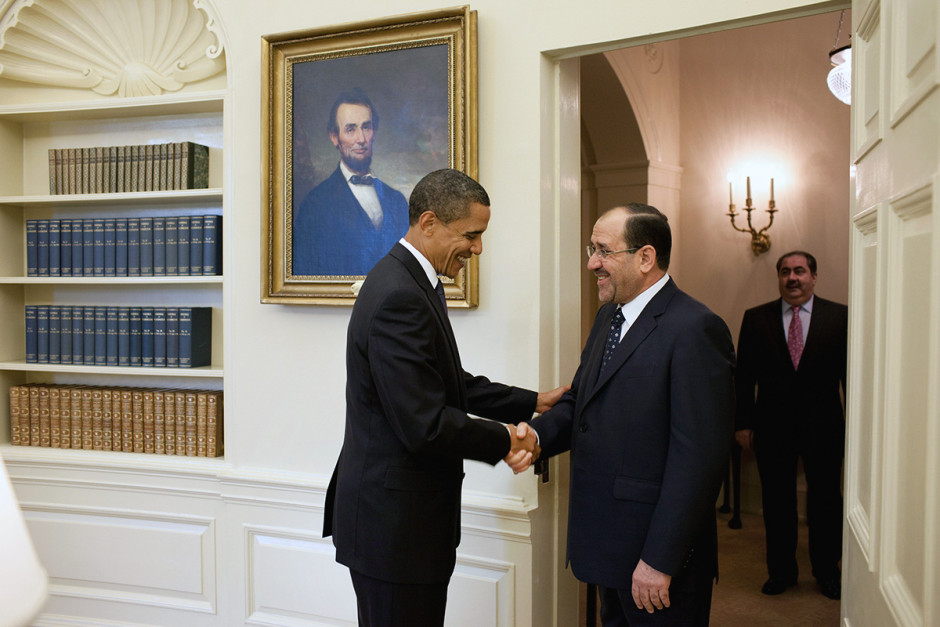Nuri Kamal al-Maliki is America’s Frankenstein. The United States empowered him, and now it is trying to get rid of him.
Plucked from obscurity by Washington in 2006 to succeed Ibrahim al-Jaafari as Iraq’s next prime minister, Maliki, a Shiite, has been a thorn in its side ever since. Volatile and mercurial, Maliki is currently at the center of a political and military crisis roiling Iraq, which has been in turmoil since the U.S. invasion in 2003.
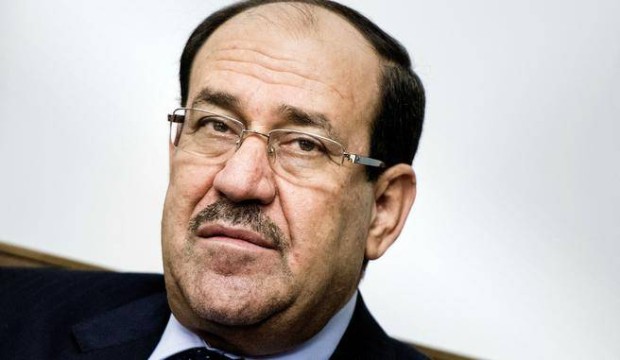
A divisive figure who has alienated Sunnis and Kurds and who has spawned dire sectarian tensions in this deeply divided country, Maliki has become a liability in Iraq’s effort to stabilize itself after more than a decade of internal strife. He won last April’s general election and has spent the past four months attempting to form a coalition government. Despite all his efforts, he has abysmally failed to cobble together a new government.
Iraqi politicians of all stripes, Iraq’s supreme religious leader, Ali al-Sistani, the United States and even Iran have all urged him to step aside. He has resolutely refused, even as the Islamic State in Iraq and Syria (ISIS), a fanatical Sunni offshoot of Al Qaeda, threatens Iraq’s sovereignty and independence. But inevitably, he’ll have to leave.
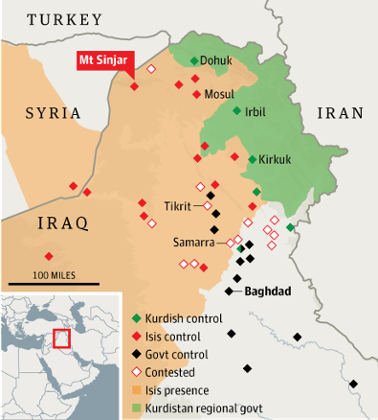
Iraq, which has been a classic case study in instability since the removal of Saddam Hussein’s dictatorial Baathist regime, has gone from bad to worse since June 10, when ISIS captured the northern Iraqi city of Mosul and threatened to conquer Baghdad. In storming into Mosul, ISIS routed the U.S.-trained and equipped Iraqi army, which left behind tons of weapons and munitions for the taking.
ISIS, which specializes in mass murder and beheadings and stands for religious intolerance, launched its military campaign in Iraq in January by capturing the cities of Falluja and Ramadi. ISIS racked up fresh victories recently by seizing the biggest dam in Iraq, which controls the water levels of the Tigris River as far south as Baghdad.
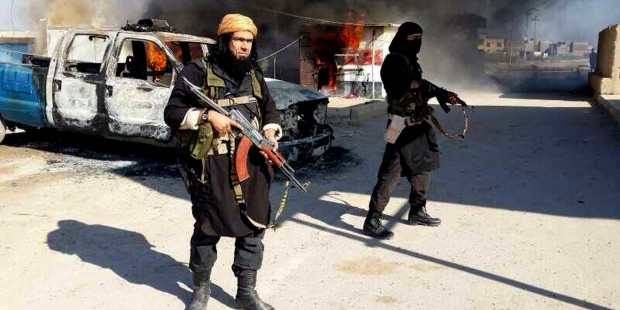
Building on its momentum, ISIS — whose primary goal is to create a religious state in Syria and Iraq and erase the post-World War I borders of the Middle East — began advancing on Erbil, the capital of the semi-autonomous Kurdish enclave in northern Iraq, last week.
Having defeated poorly-armed Kurdish pesh merga forces, ISIS sacked two nearby towns populated by Christians and Yazidis, slaughtered 500 Yazidis — an ethnic and religious minority accused of devil worship by mainstream Muslims — and threatened the survivors with death unless they converted to Islam. Duly intimidated, they fled in terror. Tens of thousands of Yazidis flocked to Mt. Sinjar, one of their holy sites, and found themselves stranded there.
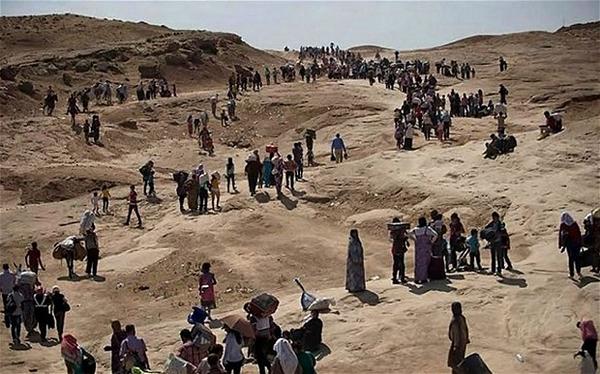
Washington intervened, fearing an imminent ISIS victory in Erbil and a humanitarian disaster of major proportions on Mt. Sinjar.
Returning to a direct combat role in Iraq for the first time since its withdrawal in December 2011, the United States carried out limited and focused air strikes on ISIS positions in a bid to slow its offensive. And in cooperation with Britain, the Americans dropped food and water supplies on Mt. Sinjar, hoping to avert the spectre of starvation and to break ISIS’ siege of the mountain.
Recognizing the seriousness of the situation, President Barack Obama, who has already sent some 300 military advisors to Iraq, has warned that the United States’ confrontation with ISIS may last for many months.
As these events unfolded, the U.S. Central Intelligence Agency reportedly funnelled arms to the pesh merga, enabling the Kurds to recapture the two towns that had fallen to ISIS.
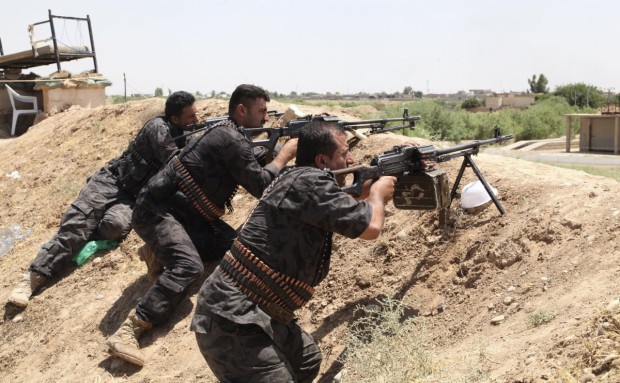
In Baghdad, under heavy pressure from the United States, Iraq’s newly-appointed Kurdish president, Fuad Masum, nominated the deputy speaker of parliament, Haider al-Abadi, as Maliki’s replacement. Abadi, a Shiite, comes from the same political party as Maliki. As expected, Maliki denounced his critics, describing himself as Iraq’s rightful leader and demanding a third term in office.
However, Obama and his vice-president, Joseph Biden, welcomed Abadi’s nomination, calling it “an important step towards forming a new government that can unite Iraq’s different communities.”
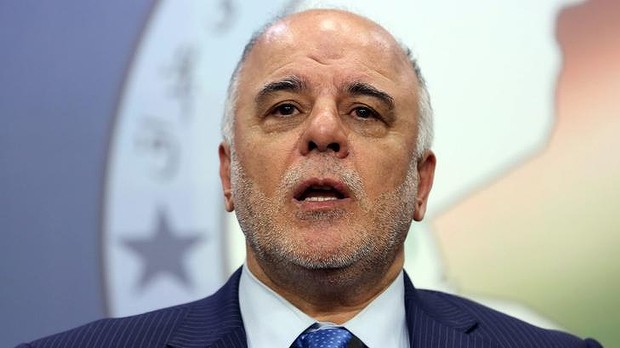
And in a reference to ISIS’ rampage, Obama said that American military assistance, while useful, is not as important as resolving the current political impasse in Baghdad. “The only lasting solution is for Iraqis to come together and form an inclusive government,” he declared, echoing previous comments he has made on this subject.
Maliki, who spent years in exile during the Saddam Hussein era, is a leading member of the Islamist Dawa Party, which has close ties with Iran. A dour and canny politician with an authoritarian streak, he owes his position to the United States, which orchestrated his rise to power.
Maliki became prime minister in 2006, when Iraq was engulfed in a civil war pitting the majority Shiites against the minority Sunnis, who constituted the ruling elite prior to 2003. The Americans calculated that Maliki would be far more decisive than his predecessors, and they were right.
Maliki soon disappointed the United States.
He refused to sign an agreement that would have left a U.S. residual force in Iraq, a force that probably would have routed ISIS. He sidelined the Sunni community, a strategy that aggravated existing sectarian animosities. And he permitted Iran, the preeminent Shiite power in the region, to expand and deepen its influence in Iraq, particularly after ISIS conquered Mosul.
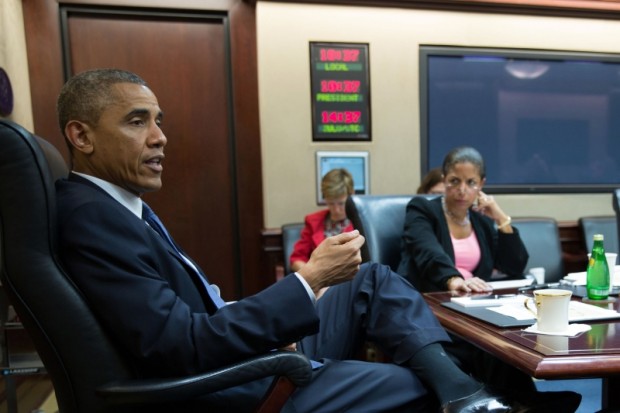
Rightly or wrongly, the Americans calculate that Abadi is a more compliant and pragmatic figure than Maliki and that they can work with him harmoniously to solve Iraq’s pressing problems. In the meantime, the Obama administration has ruled out the prospect of sending troops to Iraq, but Obama and his secretary of state, John Kerry, have both said that wider U.S. support can be anticipated if Maliki resigns and Iraqi leaders manage to form a national unity government that satisfies Shiites, Sunnis and Kurds.
Even if that happens, ISIS, a highly motivated, resilient and formidable force, poses a mortal threat to Iraq.
Iraq is not yet out of the woods.
